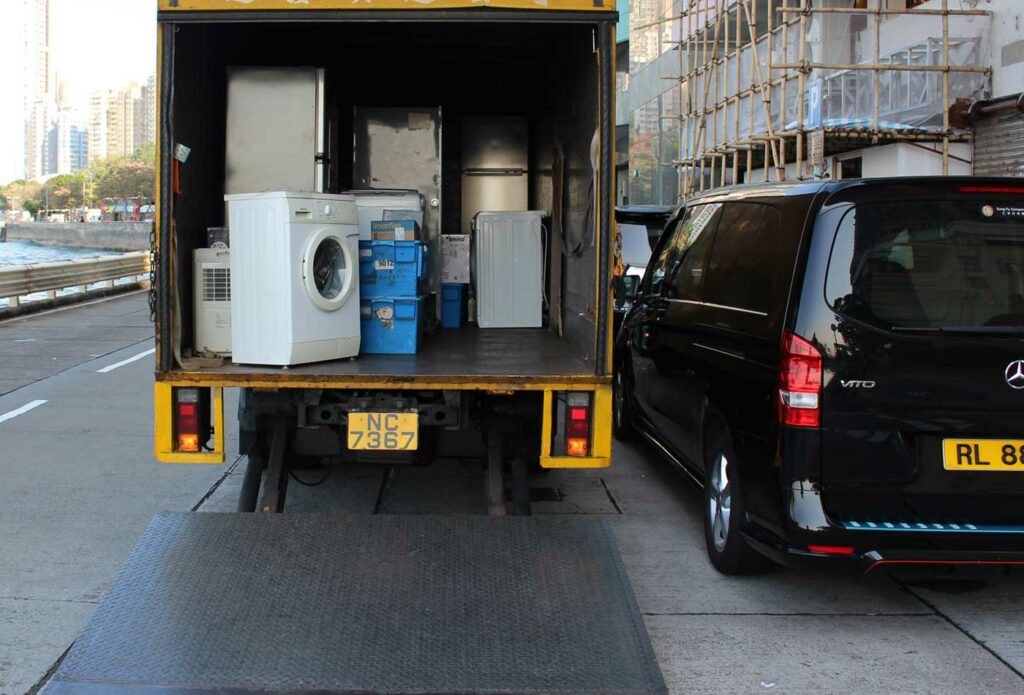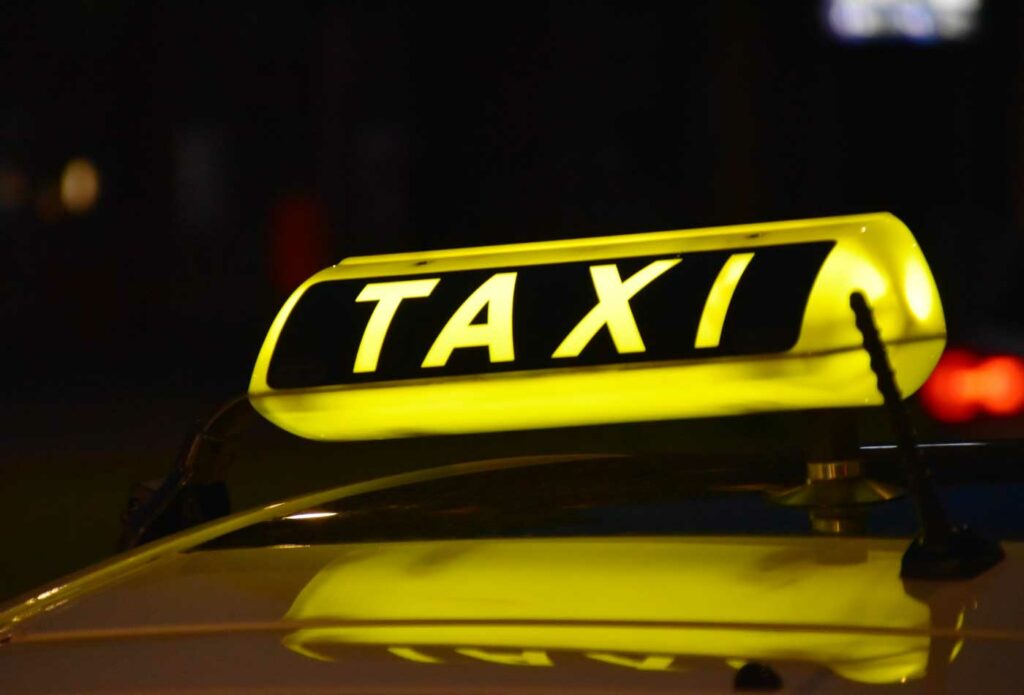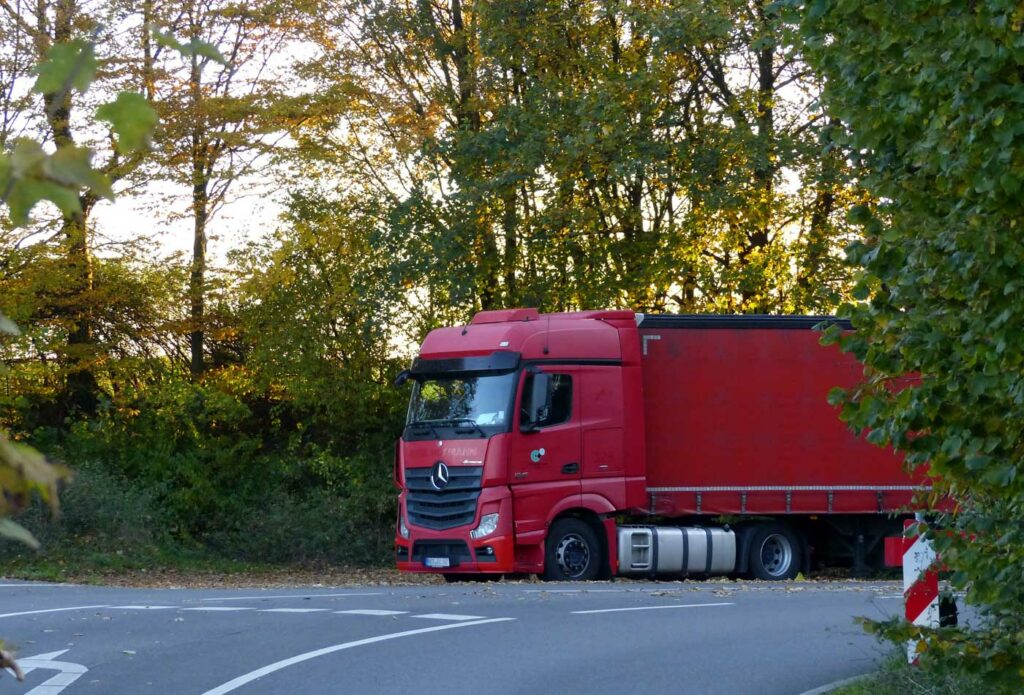Have you ever thought about starting a transport business in the UK? Or have you ever wondered how to start a transportation business with one van?
Transport and logistics are two thriving industries that keep the country moving. So, if you’re eager to start your own business or wondering how to start a transport company, keep reading.
The transport sector in the UK is a bustling, ever-changing environment. All over the country, from bustling urban centres to remote rural communities, the demand for efficient transportation services is always there. Whether you’re thinking of running delivery vans, managing a long-haul trucking outfit or offering specialised transport services, there’s much to explore. But getting started can feel like walking into a complex maze of rules and regulations.
This guide aims to demystify things for you. We’ll break down the process of how to set up a transport business in the UK, offering practical advice and insights to help you succeed in the UK’s transport industry. So, if you’re buckled up and ready to go, let’s start the journey to kickstart your very own transport business in the UK.

What does the UK transport sector look like today?
Today’s transport industry is quite different from a few generations ago. It used to centre around transporting raw materials like coal and metal, while it’s now focused on consumer goods thanks to the meteoric rise of e-commerce sites like Amazon and eBay.
The road transport sector is the dominant transport force in the UK. It includes various types and sizes of businesses, from individual owner-operators who operate locally to large logistics firms who operate internationally. Freight services transport goods in bulk, van drivers deliver consumer goods to people and businesses, and taxi and private hire car firms get people where they need to go.
Demand for freight companies in particular – who move cargo by road, air or sea – has never been higher thanks to Brexit, a shortage of HGV drivers and rising fuel costs. Businesses are desperate to work with transport firms who can move their goods around and outside the UK, which presents any aspiring business owner with several viable business opportunities.
Some transport businesses can be relatively inexpensive to set up, like a private hire car firm with one car. Whereas others, like heavy goods haulage, can cost £35,000 or more just for a single-lorry business. But no matter which type of transport business you want to start, you can usually lease most of your startup equipment, like trucks and vans, as well as an office to work from and parking space for your vehicles.

What are the different types of transport business?
Each transport sub-industry serves a specific market niche and supports the movement of goods and passengers across the country.
Bus and coach service provider: Coach service providers take people to and from airports and national bus stations and facilitate day trips to the seaside and other idyllic places. They also pick students up from school and university and take them on extracurricular excursions to museums and other sites of cultural or historical interest.
Passenger transport: Taxi and private-hire car firms fall under this category, whose services mostly include getting people where they need to go. There are important differences between taxi and private-hire firms worth considering if you’re planning on setting up either, including that only taxis can pick people up roadside, whereas private-hire cars must be pre-booked.
Haulage and freight services: Haulage and freight services involve transporting goods in bulk. There are two main types of freight service – freight forwarding and freight brokerage.
Freight forwarding firms accept goods from clients who want to hold goods in their own warehouse and then transport those goods wherever the clients ask. Sometimes, the firm will outsource the transportation; other times, it will handle the shipping itself.
Freight brokerage companies are the middlemen between businesses that have goods to transport and freight companies that can move those goods for a fee. As they’re not directly involved in the transport process, freight brokerage firms won’t handle or store freight at any point.
Courier and delivery: These firms specialise in the timely and efficient delivery of parcels, packages, and documents. This mostly includes packages from e-commerce sites like Amazon or eBay or food from local restaurants and take-outs. Courier and delivery firms often employ van and car drivers, but many also rely on moped and motorbike riders, too.
Removals and relocation: When you hear the word ‘removals,’ you think about moving house. And while many companies in this sector help people move house, there’s plenty of other work too. Some firms specialise in helping businesses move into larger offices, for instance, while others specialise in packing or unpacking services.
Specialised transport provider: These companies move unusual or even hazardous goods. This could include moving frozen goods from slaughterhouses and butchers to supermarkets and other food outlets. It might also mean transporting cars using a car carrier trailer or hazardous materials like medical waste.
Waste and recycling collection services: Waste management firms collect and transport waste and recyclable materials for disposal at local authorities or recycling sites.
Vehicle rental and leasing: Car leasing companies rent out cars, vans, trucks, and other speciality vehicles for various purposes. This can include long-wheelbase vans for helping people move house or luxury cars like limousines or sports cars for special events.
Towing and Recovery Services: Recovery firms help stranded or damaged vehicles by towing them to repair shops and impound lots. Many also offer roadside assistance if a car breaks down on a motorway or in the countryside.
Tour and travel operator: These companies organise guided tours, excursions to exciting places, and group travel experiences, mostly using minibuses or coaches.

What do you need before you set up a transport business?
Before you set up a transport business, you’ll need a business plan, an understanding of what insurance you need in order to operate legally, and the relevant licences and qualifications. It’s also a good idea to have a regular UK driving licence and, in most cases, at least one employee with a heavy goods vehicle (HGV) licence.
Transport business plan
Writing a solid business plan is a crucial first step in setting up a transport business if only to evaluate whether your business will turn a profit. Don’t worry if you haven’t studied business or have never written a business plan before – it’s not that complicated, and you’ll feel like you’ve taken the reins once it’s done.
The first question your business plan should answer is what type of transport business you want to operate: freight, recovery, vehicle rental, waste disposal, etc. From there, you can draw up a list of all the equipment you might need to launch your business, such as heavy goods vehicles, vans, cars, office or warehouse space, and somewhere to store your vehicles when they aren’t in use. You can also weigh up whether to buy or lease your vehicles, but answering this question right away isn’t essential for your first business plan.
Once you have some initial figures in mind for how much it’ll cost to launch your business, you can conduct market research, which mostly involves comparing how much demand there is for your particular type of business against how many other suppliers operate in your area. Too little demand or too much competition usually means you need to start up your business elsewhere.
Now that your market research and startup costs are in hand, you need to consider which types of insurance your transport business needs and how much it will cost.
Transport business insurance
When starting a transport business, your business could need many different types of insurance, which mostly depends on the service that the business provides.
Given that transport businesses almost always use vehicles to transport either people or goods, vehicle insurance is pretty much a given. This can start from insuring a single taxi for a one-person taxi company all the way up to HGV insurance policies that allow truckers to drive several different vehicles from a fleet of lorries and trucks. Depending on the type of vehicles your business uses, you might also need commercial vehicle insurance.
It’s also possible to insure any goods your vehicles are transporting using goods-in-transit insurance, which protects your firm if a client’s goods are lost, damaged, or stolen.
Public liability insurance is also required for most types of transport business, as it protects the company against any legal claims made against it in the course of its business. For instance, if an HGV driver damages a building while backing around a tight corner or if a pallet falls off the back of the truck and injures someone, the company could face an expensive legal claim. In this case, public liability insurance would cover your legal costs and any compensation you need to pay out to the wronged parties.
You’ll also need employers’ liability insurance if your business has employees. This is designed to protect you against any claims your employees may make against your company. For instance, if one of your workers doesn’t wear a mask and then breathes in too much dust and develops asthma, or if they fall off a ladder in your warehouse, they could bring a legal claim against you, their employer. But employers’ liability insurance protects against that. If you hire even one person who is not a direct family member, then your business must legally have employers’ liability insurance.
If your base of operations is an office, you would also benefit from office insurance. This would cover the cost of replacing furniture, fixtures and fittings damaged or lost during events like burglary, fire and flooding. Office insurance protects against replacing damaged items and the cost incurred by not being able to trade while your business recovers.

Transport business qualifications and licences
When debating how to start a transport business, it’s imperative that you have the correct licences and qualifications. Not having them could put you on the wrong side of the law and could invalidate any business agreements and insurance policies you may have.
The exact qualifications and licences you need will depend upon the type of transport business you want to launch. Here’s a summary of some of the most useful qualifications and licences to have:
Transport Operator Licence
You need a Transport Operator’s licence to work as a transport manager. To get this licence, you must pass one of two courses in either (1) road haulage, which covers goods vehicle operators like HGVs, or (2) road passenger transport, which covers bus and coach companies. You must pass both courses if your business will operate both vehicle types.
The Transport Manager CPC exam covers civil, commercial, social and fiscal laws on road haulage, business management, and the legality of taking passengers or goods in and out of the UK. Once you have passed the exam, you can apply to the Department of Transport, who will grant your licence. You are then free to own and operate a business which involves transporting goods or people.
HGV Licence
An HGV licence allows you to drive a lorry weighing 32 or 44 tonnes, depending on which licence you get.
To get an HGV licence, you must first apply to the DVLA for a provisional HGV licence, which requires you to pass more stringent medical standards than you would for a standard car licence. Then, you must pass the 5 HGV driving tests that make up the Driver CPC. This allows you to drive a 32-tonne lorry.
A Class 1 C+E lorry is an articulated vehicle which bends in the middle and can weigh up to 44 tonnes. To drive one, you must pass your HGV licence and undertake further training.
Public Service Vehicle Operator Licence
If you’ve ever researched ‘how to start a passenger transportation business,’ you’ll already know this licence is a must.
This licence is required to run a transport business that operates any vehicle for hire that carries nine passengers or more or which operates a smaller vehicle that carries passengers and charges separate fares for the journey.
There are four different types of public service operator licences, and you’ll need to pick the right one for your business. If your business intends to take passengers outside the UK, for instance, only one PSVO licence allows this, so you need to ensure you apply for the right one.

How to find new business as a transport operator
Now that you have a business plan, you’ve carried out market research, and you know everything you need to about licences and regulations, the next step is figuring out how to bring some money in when you launch your business.
One way to attract business in the early days is to link up with established firms that subcontract work to new and smaller firms. There are a number of transport companies which subcontract all their work out to other drivers, meaning they don’t own any vehicles at all. These companies are always looking for reliable businesses to work with, even if they are new to the industry.
Park Insurance
If starting a transport business in the UK is your dream, then protecting that dream with secure insurance policies is vital to your success. At Park Insurance, we have over 30 years of experience working with the transport industry, and we’re always happy to hear from new and established transport companies about how we can help.
To get in touch, give one of our friendly and experienced insurance agents a call so we can find the right insurance for your business.
